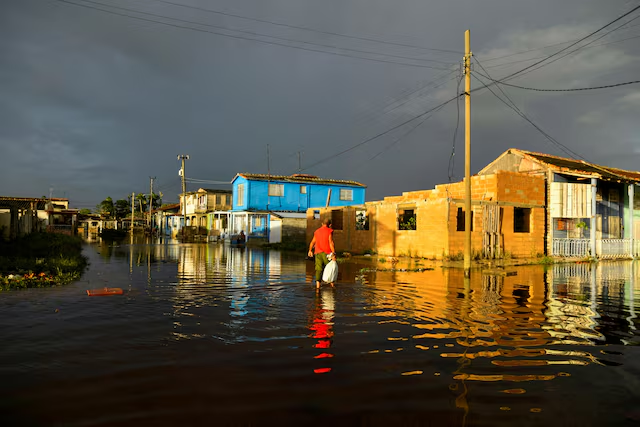A coalition of climate-vulnerable nations is seizing a key U.N. meeting this week to advocate for a major overhaul of the global credit rating system, urging that it reflect the investments made in climate resilience. The push comes as heads of state prepare for a major finance conference in Spain next year, where international leaders will seek to accelerate efforts to meet global climate and sustainability targets.
At the forefront of the discussions are 39 Small Island Developing States (SIDS), including nations such as Cuba, Haiti, Fiji, and the Maldives, which are facing the worst impacts of climate change. These countries are already dealing with the devastating consequences of rising sea levels, increasingly severe tropical storms, flooding, and coastal erosion.
Currently, the credit rating system, used by agencies like Moody’s, S&P Global, and Fitch, tends to focus on the potential economic damage posed by climate change, without accounting for the social and economic benefits of investments in climate resilience. According to Ritu Bharadwaj, director of climate resilience and finance at the International Institute for Environment and Development, the focus on risks related to climate exposure is hampering these nations’ ability to raise vital funds. Bharadwaj emphasized that for the first time, the credit rating issue is officially on the table for discussion during these U.N. meetings.
Proponents of this initiative argue that the current system does not adequately reflect the steps these countries are taking to bolster their resilience to climate impacts. Instead of merely focusing on the economic risks of climate change, they want credit ratings to provide a more balanced perspective that also considers the opportunities created by investments in resilience.
Despite this, the response from the major credit rating agencies has been cautious. A spokesperson for Fitch referred to its existing methodologies, while Moody’s pointed to its recent credit risk assessments on countries like Fiji, Barbados, and Bermuda, where they acknowledged climate risks but also highlighted ongoing mitigation efforts. S&P did not immediately respond to the criticism.
The lack of favorable credit ratings has significant implications for these countries. Credit ratings are crucial for accessing global capital, including investments from large institutional investors such as pension funds. However, of the 39 SIDS, only 13 have a credit rating from one of the Big Three agencies, and many of them fall into the sub-investment grade or “junk” category. For those without a rating, the cost of obtaining one can be prohibitively high, further exacerbating their financial challenges.
The ability of these nations to secure the private finance needed to achieve the $1.3 trillion annual climate finance goal, as outlined at COP29 in Baku last month, is at risk. Bharadwaj pointed out that without a redefined approach to credit ratings, these countries will continue to struggle to access the necessary capital to meet their climate goals.
The issue of credit ratings has gained broader attention in recent years. In response to concerns that the Big Three do not accurately assess risks for developing countries, the African Union has announced plans to launch a new ratings agency for Africa. The initiative seeks to create a more accurate and equitable system for rating the creditworthiness of African nations, which are similarly vulnerable to climate impacts.
Gastone Browne, Prime Minister of Antigua and Barbuda, voiced his frustration with the current system, calling it “illogical, punitive, and backward looking.” He argued that a more equitable credit rating system is needed—one that takes into account the full spectrum of risks and opportunities, especially for nations facing the direst climate challenges.
As discussions continue at the U.N. meeting, the push for reform is gaining momentum. By integrating climate resilience into the credit rating process, these nations hope to not only secure better financial terms but also to highlight the importance of climate adaptation efforts in fostering long-term sustainability and economic stability.



